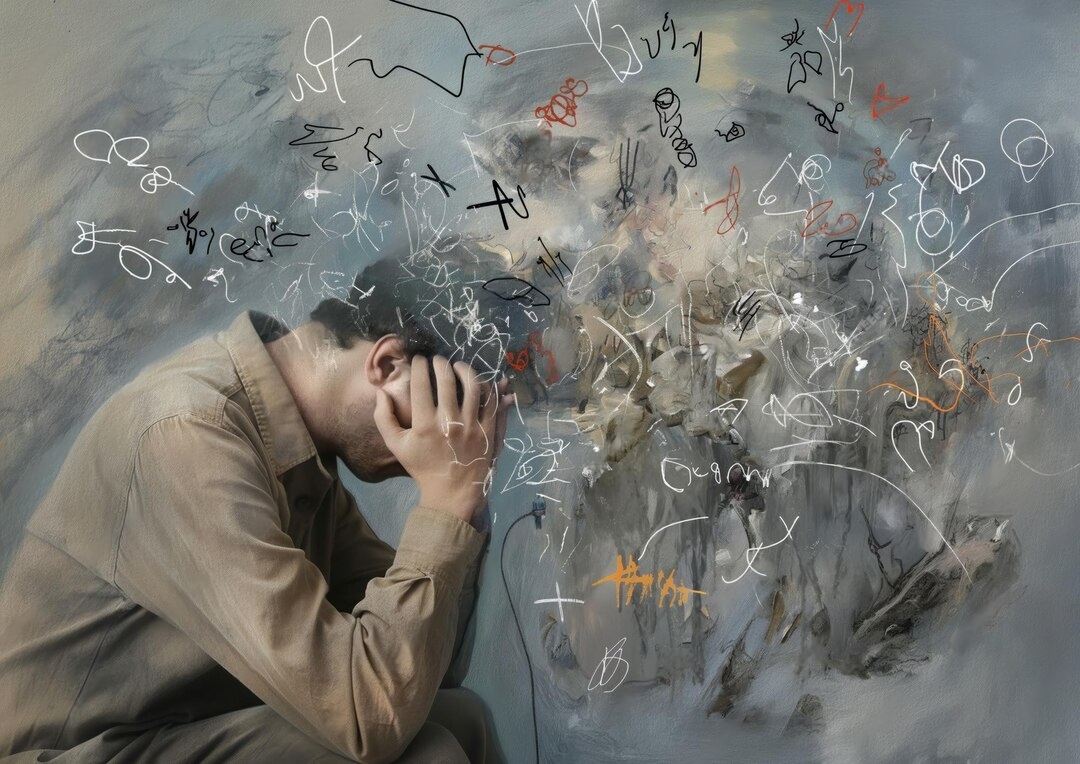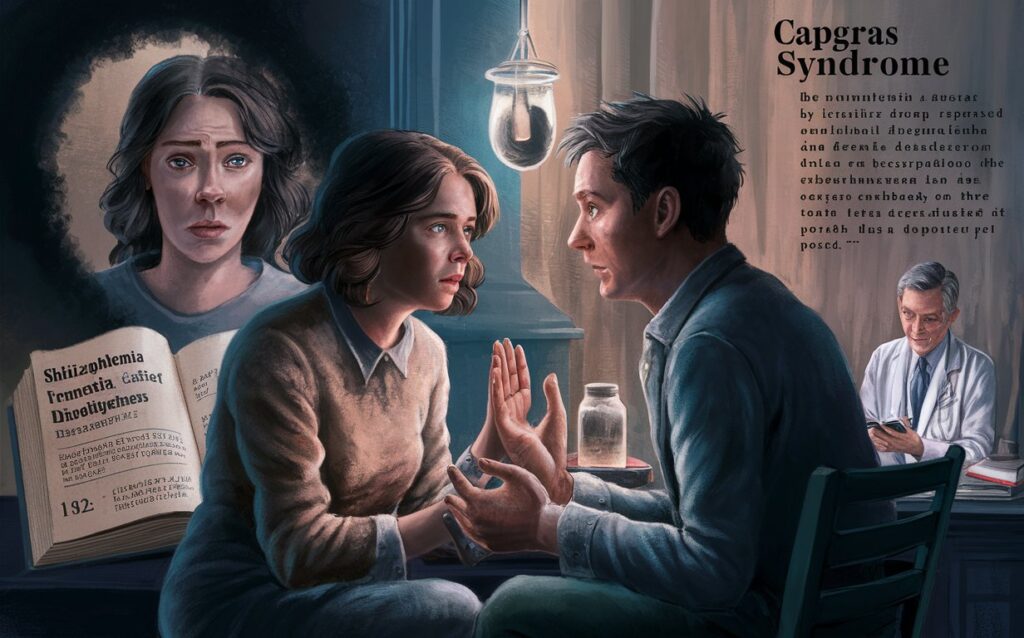
Introduction
Mental disorders, of course, are multifaceted in nature; however, they cannot be reduced to the symptoms seen in a given individual with a particular ailment. Even though some disorders are more widely documented, there are many challenging and rare ones that tend to be brushed under the rug because of their inability to cope with them. One of the topics we are going to explore in this blog post is the rare mental health disorders that you probably have never heard of, and they are as follows: These disorders, from gene erudition to mental ones, are quite unusual, and they can broaden the view of the workings of the human brain.
10 Rare Mental Health Conditions
1.Capgras Delusion

The syndrome Capgras happens when someone supposes that his/her beloved person has changed into someone who is like him/her while they look exactly the same but are not the original ones. This may be correlated with schizophrenia, dementia, and neurological disorders, but the nature of this relationship may be complex.
2.Cotard Delusion

Cotard Delusion Additionally, this phenomenon is sometimes known as Walking Corpse Syndrome, which is a rather unusual mental disorder associated with some individuals’ thoughts that they are already dead or do not exist. There could be a range of consequences, such as depressed moods and psychotic disorders.
3. Foreign Accent Syndrome

Bilingual accent syndrome That is a rare disease in which a person begins to talk with a different accent, typically after suffering from a stroke or traumatic brain injury. It’s not speech modification, but speech impairment.
4.Apotemnophilia

Apotemnophilia (Body Integrity Dysphoria) The term apotemnophilia, nowadays is used less and adopted the expression body integrity dysphoria. It implies the seeking of total amputation of healthy organs or the state of being disabled. It’s a sensitive issue that ties up both psychological and neurological concerns.
5.Trichotillomania

Trichotillomania is a disorder where people, beyond their control, deface their faces while pulling out hair, which does make them end up with bald patches. Such experiences can cause remarkable emotional tension and strike back at the state of health and well-being.
6. Walking Corpse Syndrome

Wandering Corpse Syndrome (Cotard’s Syndrome) The term, which is also known as Cotard’s Delusion, is about a person who believes that he or she has ceased to exist or is dead but still walking around. It is quite common that a person with it may also suffer depression, schizophrenia, or any mental imbalance.
7.Stendhal Syndrome

The Stendhal Syndrome can be defined as a psychosomatic reaction due to rapid heartbeat, dizziness, giddiness, faintness, hallucinations, and even fainting or falling while in contact with art. It is indeed named after the French writer Stendhal, who, at the end of the 19th century, reported having the same symptoms.
8.Paris Syndrome

Paris Syndrome, which is a brief psychological disorder induced in some tourists, is disappointed with the real Paris as opposed to the romance and greatness they expect to happen there. Symptoms vary depending on the different periods and can involve delusional delusions, experiences of persecution, and anxiety.
9.Cotard’s Syndrome

The Cotard’s Syndrome has a similar appearance to the Cotard Delusion, whereby people may affirm their deaths or find them unreal. It’s an uncommon disease, and your doctor should look into it.
10.Jerusalem Syndrome

It is the sequence of events and feelings caused by psychological triggers, of which religion is the main one, and it appears for those who travel to Jerusalem during their pilgrimage to the holy sites. It affects both those with a religious background and those who do not, which does not make it a common medical condition that is usually used in primary diagnostic manuals.
Rare Psychological Syndromes, Side Effects, and Disorders
Alice in Wonderland Syndrome
Alice in Wonderland Syndrome (AIWS) is a type of neurological condition that causes a person’s perception of the size around them to be altered, making objects around them appear either larger or smaller than they typically are. Human beings can also suffer from a deformed body image, bodily perceptions, and a loss of time sense. Being on drugs, he feels he is in an altered world, and this world is named after that famous novel in which the character undergoes similar hallucinations.
Body Integrity Identity Disorder
Body Integrity Identity Disorder (BIID) It’s BIID by another name, which refers to a deficit in mental body image compared to their physical one. It might also be that they do not like cutting off a healthy limb, thinking that it is not for them. This means an intricate combination of feelings of self-hood, perception, and physical embodiment, along with their interactions.
Fregoli Delusion
Fregoli Syndrome One of the unusual disorders is when one believes one is experiencing the appearance of a stranger who is actually a single person masquerading or having a change of expression. A victim of Fregoli syndrome could have the belief that there is an individual who has replaced him or her everywhere, be it in the supermarket, at work, or at home. It is said to be frequently found in association with paranoia and is sometimes considered part of brain disorders such as schizophrenia and dementia.
Alphabetical List Of Mental Disorders
Antisocial Personality Disorder
Antisocial personality disorder (ASPD) is considered when habitual violations of the laws or norms of a society are undertaken by manipulating, exploiting, or disregarding the rights of others. This behavior is extremely criminal, and those who do not take it to task are not doing it right by anyone or anything. In the group of people with ASPD, they may manifest a lack of mornings for their actions, impulsivity, hypocrisy, and aggression. The treatment includes a combination of psychotherapy and medication; however, this mixture is difficult to treat.
Bipolar Disorder
Bipolar Depression According to the estimates of mental health professionals, bipolar disorder is associated with erratic mood swings, overinvestment of energy into the activity, and hence, energy levels. These emotional “swings” may go from the euphoria (manic or hypomanic state) towards the lows (depression). The therapy consists of taking medication as well as psychotherapy to help manage the symptoms.
Dissociative Identity Disorder (DID)
Dissociative Identity Disorder (DID), one of the most interesting and difficult mental disorders, can be used to explain what makes DID a unique condition that is called multiple personality disorder. This is usually caused by the continuous and extended traumas that are common at the early stages of a child’s life, for example, chronic abuse. The therapy involves extensive psychotherapy aimed at unifying the two poles of identity into one.
Obsessive-Compulsive Disorder (OCD)
Obsessive-Compulsive Disorder (OCD) It is very common for people with OCD to suffer from obsessions, which are repeated, unwanted thoughts and compulsions that are characterized by a feeling of necessity to act on them. The treatment is usually a combination of medication (ex. selective serrotonin reupate inhibitors) and cognitive-behavioral therapy.
Post-Traumatic Stress Disorder (PTSD)
PTSD (Post-Traumatic Stress Disorder) can form from traumatic situations such as battle zones, catastrophes, or any kind of personal attack. A very frequent phenomenon is suffering from memories, nightmares, severe anxiety, and intrusive thoughts. The treatment can involve therapies like cognitive-behavioral counseling, and antidepressants are also one of the remedies.
Conclusion
It is more valuable to love and empathize with the variety and depth of human experiences comprehending rare mental disorders. Even though the circumstances that provide the grounds for misunderstanding are rarer, these cases should not be neglected, nor should they be handled with apathy. In this regard, we are going to bring enlightenment to these conditions that will result in an accepting and understanding society for all individuals who will be dealing with mental health predicaments.
FAQS for 10 Rare mental disorders
What is Foreign Accent Syndrome?
Foreign Accent Syndrome is a rare condition where a person suddenly begins speaking with a different accent, typically following a stroke or brain injury. This change is not intentional and is classified as a speech impairment.
What is Apotemnophilia (Body Integrity Dysphoria)?
Apotemnophilia is characterized by a strong desire for amputation of healthy limbs. This condition highlights complex psychological and neurological concerns regarding body image and identity.
What is Stendhal Syndrome?
Stendhal Syndrome is a psychosomatic reaction that can occur when individuals experience overwhelming emotions in response to art, leading to symptoms like rapid heartbeat, dizziness, and even fainting.
What triggers Paris Syndrome?
Paris Syndrome is a temporary psychological disorder experienced by some tourists who become disappointed with the reality of Paris compared to their romanticized expectations, leading to anxiety and delusions.
What is Jerusalem Syndrome?
Jerusalem Syndrome is a phenomenon affecting individuals who visit Jerusalem, leading to religious-themed psychosis, regardless of their prior beliefs. It can manifest as delusions or heightened emotions related to religious sites.
Where can I find more information on rare mental health disorders?
Consult mental health professionals, reputable mental health organizations, and academic resources for more information and support regarding rare mental health conditions.









Leave a Reply